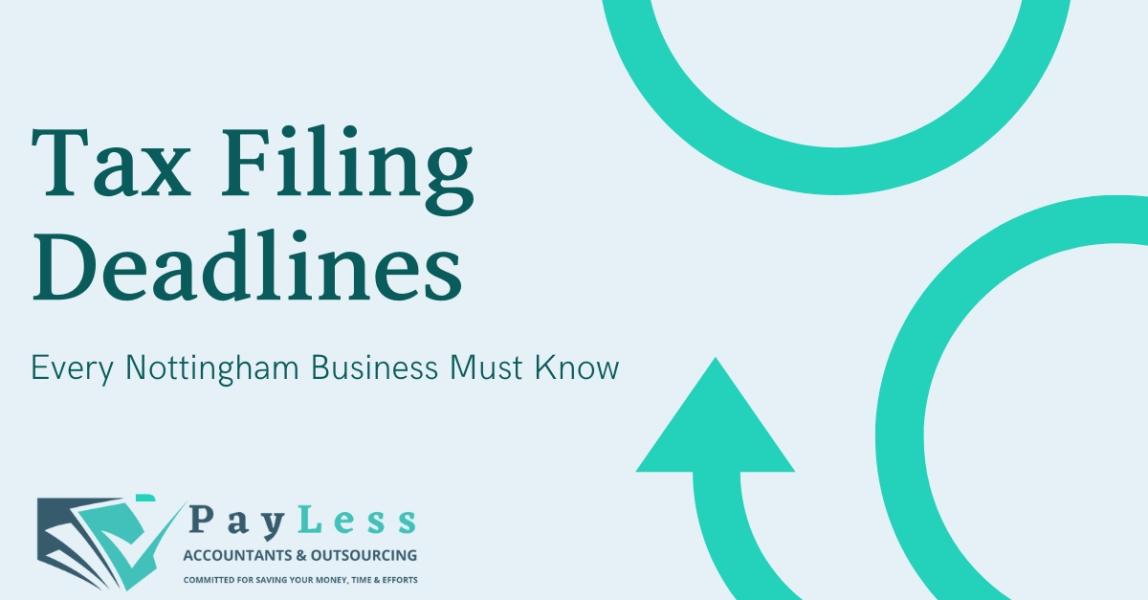Tax Filing Deadlines Every Nottingham Business Must Know
1. Corporation Tax Deadlines
Corporation tax is payable by all limited companies on their profits. Key deadlines include:
-
Accounting Period End: Your company’s financial year-end determines your corporation tax return deadline.
-
Filing Deadline: You must file your Company Tax Return (CT600) within 12 months after the end of your accounting period.
-
Payment Deadline: Corporation tax is usually due 9 months and 1 day after the end of your accounting period.
Timely filing and payment prevent HMRC penalties and interest charges.
2. VAT Deadlines
If your business is VAT-registered, it’s essential to submit VAT returns on time:
-
Quarterly VAT Returns: Typically due 1 month and 7 days after the end of your VAT accounting period.
-
Annual Accounting Scheme: Annual returns and payments must follow your chosen accounting schedule.
Missing these deadlines can result in late submission penalties and interest.
3. PAYE and National Insurance Contributions
Businesses with employees need to handle PAYE (Pay As You Earn) obligations:
-
Monthly PAYE Payments: Usually due by the 22nd of each month if paying electronically.
-
RTI Filing: Submit Real-Time Information (RTI) reports every time you pay employees.
Consistent compliance ensures employees’ tax records remain accurate and avoids HMRC scrutiny.
4. Self-Assessment for Business Owners
If you’re a sole trader or partner in a business:
-
Paper Tax Return: Submit by 31 October after the end of the tax year.
-
Online Tax Return: Submit by 31 January following the end of the tax year.
-
Payment Deadline: Any tax owed must also be paid by 31 January to avoid interest and penalties.
5. Tips to Avoid Missing Deadlines
-
Set Reminders: Use digital calendars to track each filing and payment deadline.
-
Maintain Accurate Records: Keep receipts, invoices, and payroll records organized.
-
Seek Professional Help: Chartered accountants can help you file accurately and on time.
Staying proactive with tax deadlines not only prevents penalties but also gives you peace of mind to focus on growing your Nottingham business.
Disclaimer: This blog is for informational purposes only and does not constitute legal or financial advice. Businesses should consult a qualified accountant or tax professional regarding their specific circumstances.

